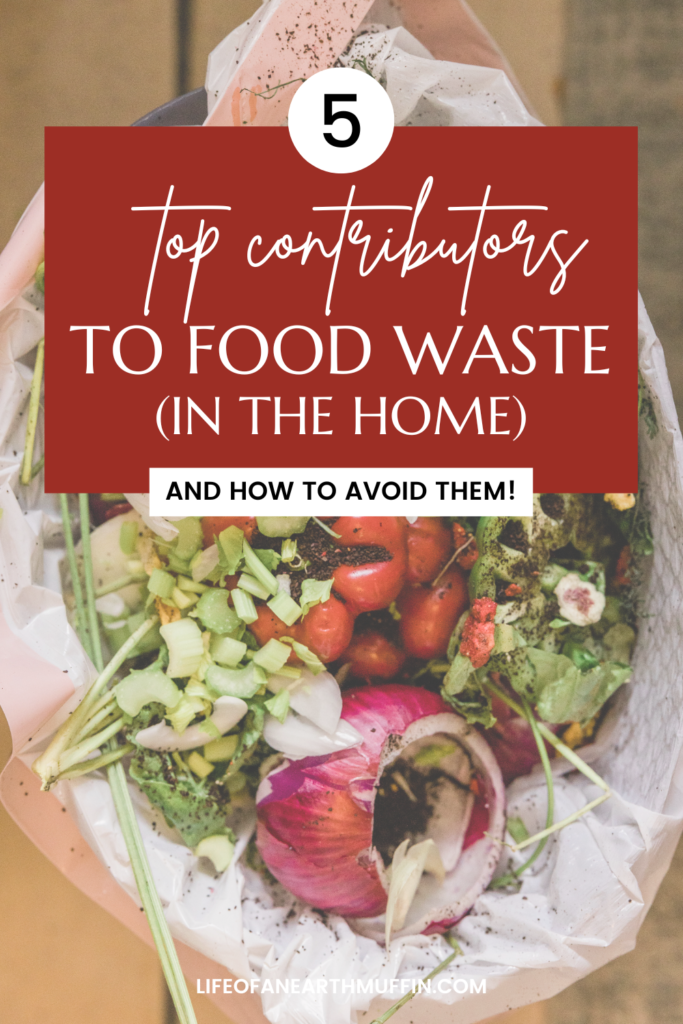Hey earth muffins! Food waste is a global issue that has severe environmental consequences. From farm to fork, a significant amount of food is wasted due to various factors. As environmentalists, we should all aim to reduce food waste as much as we can. In this blog post, we’ll delve into the top contributors of food waste in the home. More importantly, we’ll explore practical ways to avoid them and foster a more sustainable approach to food consumption going forward!

1. Wishful thinking
We often fall prey to wishful thinking by buying more perishable items than we can realistically consume at the grocery store. While we are all hoping to use these items before they spoil, this is often not the case. The solution – reduce food waste when grocery shopping! Be realistic about your eating habits and the perishable items you buy. Opt for smaller quantities or take frequent trips to the grocery store instead.
2. Incorrect meal planning
Lack of proper meal planning can lead to unused ingredients/unfinished meals, resulting in food waste. To correct this issue, plan your meals for the week and create a shopping list accordingly. Be flexible and creative with leftovers too, using them as ingredients for future dishes. I personally meal plan and prep every Sunday – and it works great!
3. Large portion sizes
Serving large portions can result in uneaten food that ultimately goes to waste. Start with smaller portions and allow yourself to take seconds (or thirds!) if needed.
4. Lack of ingredient know how
If we do not know how to effectively use items in the kitchen, we may discard parts of fruits, vegetables, etc. that can totally be used for something else. This is an easy solution – educate yourself about ingredients in the kitchen! Use vegetable peels for stocks, citrus peels as zest or for homemade cleaners, etc. Before tossing something in the compost bin, do a quick Internet search to see if you can utilize it somewhere first.
5. Storage issues
To keep items fresh longer, it is important to store them properly. Incorrect storage of perishable items can lead to premature spoilage, which leads to excess food waste. Take the time to learn how to store things (like veggies, fruits, etc.) properly! For leftovers, keep them in clear glass containers so they are more visible and more likely to be consumed. Or use an “eat me first” bin!

By being mindful of the top contributors of food waste and embracing practical solutions, we can make a significant impact on reducing waste and leading more sustainable lives. There is a lot of food waste that happens before the food even makes it to your grocery store… We can’t really change that as individuals; BUT, we are able to change the waste that comes out of our own homes. What steps do you take to reduce food waste in your home??
Love,
Jenna ♥




